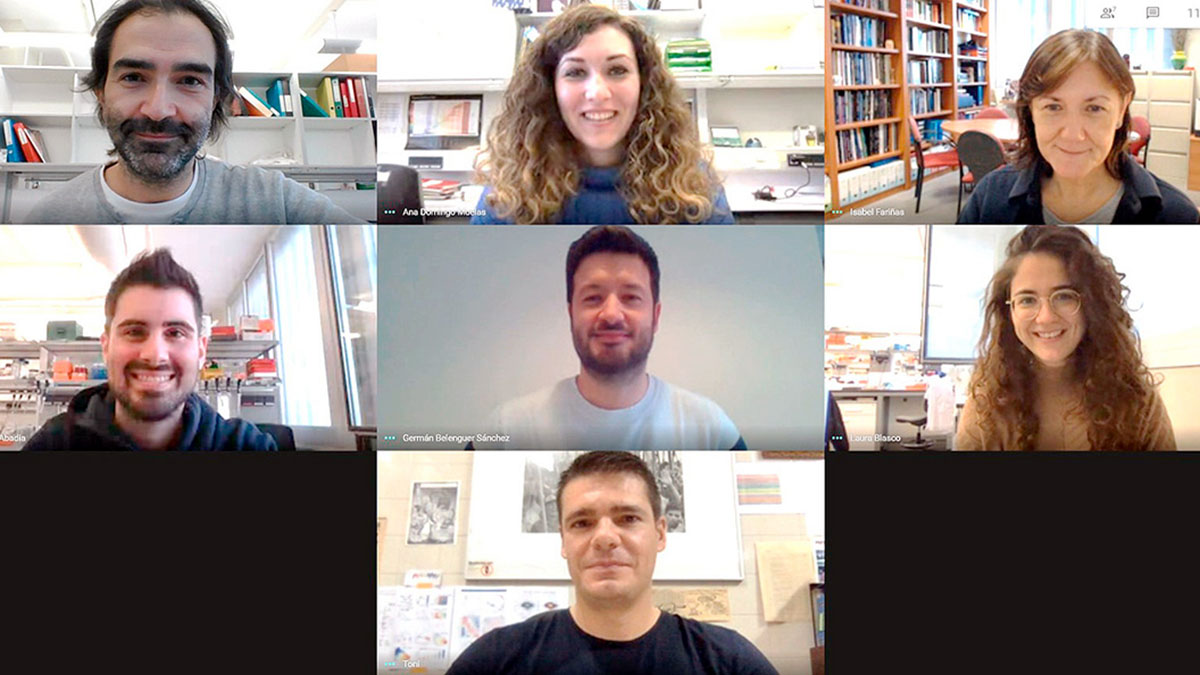The work, directed by Isabel Fariñas and published in the November digital edition of the journal Cell Stem Cell, reveals that the inflammation produced by a bacterial infection ‘alerts’ the brain stem cells and prepares their activation for the production of new neurons . The study represents a new advance in the field of regenerative medicine.
The team of researchers from the Molecular Neurobiology group of the University of Valencia, led by the professor of Cell Biology Isabel Fariñas, has just published in the journal Cell Stem Cell the results of a work that sheds light on the role of inflammation in the normal program of activating adult brain stem cells to produce new neurons throughout life.
Our tissues are constantly renewed thanks to stem cells, which generate new specialised cells to replace those that are lost through “wear and tear”. These stem cells are located in very specific locations within tissues, which are known as microenvironments or niches, and in which stem cells interact with other types of cells.
The new findings indicate that brain stem cells also respond to changes that occur outside the brain. In this study, carried out in mice, it has been shown that the inflammation produced by a bacterial infection in any part of the body is capable of temporarily activating brain stem cells and preparing them for action. When the inflammation subsides, these cells return to their quiescent state. “The work allows us to better understand the relationships between stem cells and the systemic environment, that is, the rest of the organism, something that is very little known. We are used to stem cells responding to their closest microenvironment, but evidence is beginning to appear that they can respond to what is happening in any part of the body thanks to molecules that are distributed through the circulatory system”, says Fariñas.
The work of the research team contributes, once again, new data to the study and advancement of regenerative medicine, a field of science that seeks therapeutic solutions based on stem cells for degenerative processes, such as Alzheimer’s or Parkinson’s diseases in which neuroinflammation is usually detected.
“We have always been more concerned about chronic inflammation that is associated with many diseases and is very negative for our organs, but it is a defence mechanism against damage or infection”, explains José Manuel Morante, co-director of the work. “For this reason, it is important to find out the role of inflammation in the regulation of stem cells”, he concludes.
Several doctors from the University of Valencia (Germán Belenguer, Ana Domingo, Toni Jordán, Sacri R. Ferrón and José Manuel Morante) and researchers in training Pere Duart and Laura Blasco have participated in the research. Fariñas’ team belongs to the Molecular Neurobiology group of the Institute of Biotechnology and Biomedicine of the same University, the Centre for Networked Biomedical Research in Neurodegenerative Diseases (CIBERNED) and the RETIC of Cell Therapy of the Carlos III Health Institute, and is a Prometheus group of excellence of the Valencian Government.
Reference:
Belenguer G, Duart-Abadia P, Jordán-Pla A, Domingo-Muelas A, Blasco-Chamarro L, Ferrón SR, Morante-Redolat JM, Fariñas I. Adult Neural Stem Cells Are Alerted by Systemic Inflammation through TNF-α Receptor Signaling. Cell Stem Cell, 2020, Nov 6:S1934-5909(20)30510-5.


